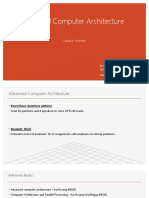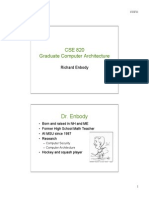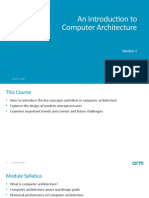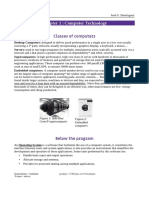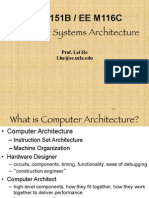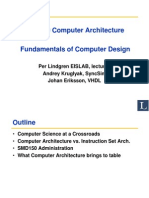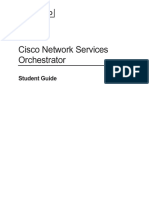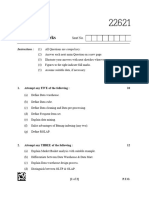0% found this document useful (0 votes)
23 views30 pagesLecture 1
This document provides an overview of computer architecture fundamentals and ARM processors. It discusses the architecture, microarchitecture, and hardware implementation levels of computer design. It also outlines key aspects of ARM processor history and prevalence, including their use in smartphones, tablets, wearables and IoT devices. Examples are given of specific ARM processors used in products like the iPhone, Amazon Echo, Fitbit and Nest Thermostat.
Uploaded by
blanksheet114Copyright
© © All Rights Reserved
We take content rights seriously. If you suspect this is your content, claim it here.
Available Formats
Download as PDF, TXT or read online on Scribd
0% found this document useful (0 votes)
23 views30 pagesLecture 1
This document provides an overview of computer architecture fundamentals and ARM processors. It discusses the architecture, microarchitecture, and hardware implementation levels of computer design. It also outlines key aspects of ARM processor history and prevalence, including their use in smartphones, tablets, wearables and IoT devices. Examples are given of specific ARM processors used in products like the iPhone, Amazon Echo, Fitbit and Nest Thermostat.
Uploaded by
blanksheet114Copyright
© © All Rights Reserved
We take content rights seriously. If you suspect this is your content, claim it here.
Available Formats
Download as PDF, TXT or read online on Scribd
/ 30





